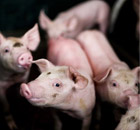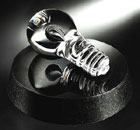Society
China issues rules to clean up courts
(Xinhua)
Updated: 2010-01-27 19:27
 |
Large Medium Small |
BEIJING: In an effort to prevent abuse of judicial power and fight corruption, China's Supreme People's Court issued a new regulation Wednesday to list a great number of restrictions against court staff, ranging from taking bribery to committing adultery with litigants.
The move came after Huang Songyou, former SPC vice president was sentenced on January 19 to life imprisonment for taking bribes and embezzlement. Huang was convicted of taking more than 3.9 million yuan (about $574,000) in bribes from 2005 to 2008.
The regulation stipulates that judiciary staff will be punished if they are found meddling and intervening court cases, giving bribes to law enforcement personnel, beating or verbally abusing petitioners and over-running timetables to enforce court rulings.
Judiciary staff will receive punishments ranging from demerits on their records, demotion, removal from posts and dismissal, according to the regulation.
| ||||
The regulation prohibits judiciary staff from tipping off or asking favors for litigants.
Judiciary staff are restricted from leaving the Chinese mainland without authorization, prolonging visits or obtaining permanent residence permits in areas outside the mainland without authorization, or acquiring foreign nationality without permission.
Judiciary staff will be punished if they commit adultery or have sexual relations with litigants or relatives of litigants, according to the regulation.
They are also banned from intentionally prolonging, or refusing to enforce court rulings, and forcing litigants to withdraw lawsuits, receiving intermediation or reconciliation terms that would hurt litigants' interests.











